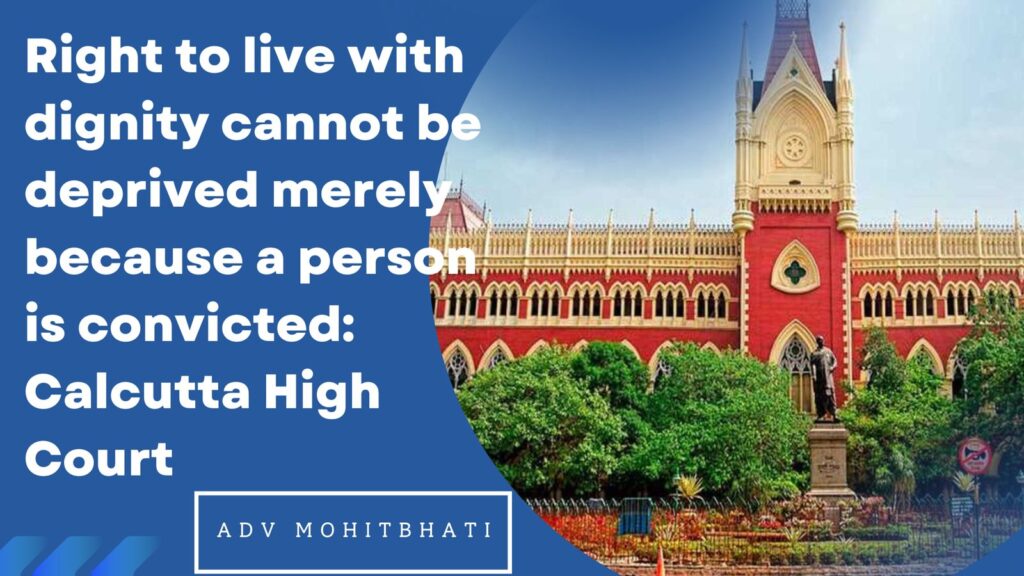The Calcutta High Court has underscored that the right to live with dignity remains intact even when an individual is convicted, emphasizing that imprisonment should not lead to the deprivation of this fundamental right. Justice Sabyasachi Bhattacharyya made this observation while instructing the West Bengal State Sentence Review Board (WBSSRB) to reconsider a plea for the premature release of a life-term convict.

In the case of Mahuya Chakraborty vs. State of West Bengal, Justice Bhattacharyya, a single-judge, expressed that the petitioner’s husband had already served over two decades in prison. The court highlighted the husband’s entitlement to live a life of dignity under Article 21, stating that conviction alone should not serve as grounds for denying this right. The order, dated January 5, asserted that imposing double punishment by refusing reintegration into mainstream society, even for an otherwise eligible individual, is unjust.
The Calcutta High Court emphatically declares that ‘dignity’ is an inviolable right, irrespective of an individual’s criminal conviction. This landmark ruling reinforces the fundamental principle that even those facing legal consequences should not be deprived of their right to live with dignity.”
The court addressed a petition filed by a woman challenging WBSSRB’s decision to deny premature release to her husband, currently serving a life sentence. The petitioner contested the decision on two main grounds: improper constitution of the committee tasked with deciding premature release and the committee’s failure to consider Supreme Court precedents.
Kerala High Court: No Medical Report Needed for Proving Drunk Driving in Culpable Homicide CaseThe petitioner cited Supreme Court judgments emphasizing the reformative nature of imprisonment, asserting that even in severe crimes, the ultimate goal is the reformation of the offender after a sufficient period of imprisonment.
Justice Bhattacharyya’s order highlighted that modern criminal jurisprudence views punishment as reformative rather than retributive. The court noted the WBSSRB’s failure to solicit a report from prison authorities on the convict’s conduct and present behavior during imprisonment.
Furthermore, the court observed a lack of information regarding the petitioner’s participation in social or productive activities, educational pursuits, or qualifications acquired while in custody. Given these deficiencies and the improper constitution of the WBSSRB, the court deemed it imperative for the board to reconsider the premature release request.
Concluding the proceedings, the court directed the WBSSRB to reassess the request for premature release with due consideration to the convict’s conduct and eligibility. The petitioner was represented by Advocates Kaushik Gupta, Anirban Tarafder, Daniel Sarkar, and Sahel Tusu, while Advocates Sirsanya Bandopadhyay and Arka Kr Nag represented the State.
Read & Download Judgment